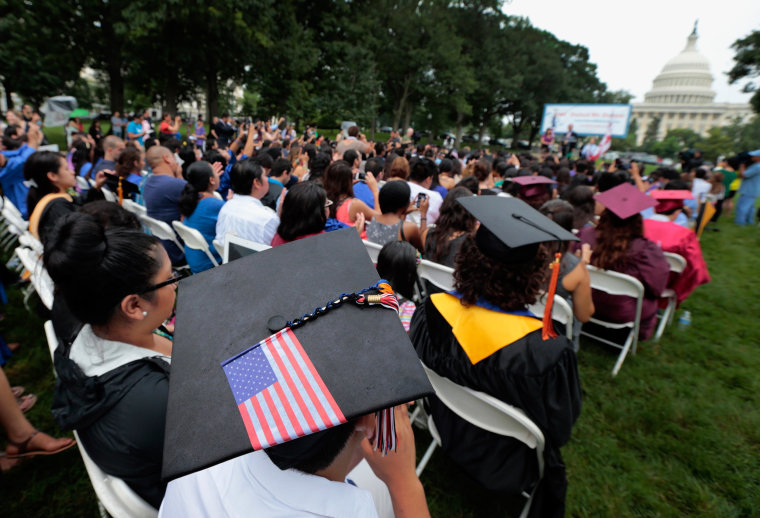The Mexican American Defense and Educational Fund is suing the University System of Georgia's regents and university officials for refusing to allow immigrants with deportation deferrals to pay in-state tuition.
The university system allows anyone lawfully present in the United States to pay in-state tuition and denies in-state tuition to people in the U.S. without legal permission.
But the system’s board of regents has decided that students awarded deportation deferrals through the 2012 Deferred Action through Childhood Arrivals program, known by its acronym DACA, are not lawfully present.
“Georgia is preventing well educated, qualified students from going to college. They are making it harder for their own community to get educated,” said Victor Viramontes, MALDEF’s national senior counsel. “This is having a terrible effect on the Latino community in particular, but all of Georgia feels it.”
Young immigrants who qualify for DACA are given work authorization and Social Security cards, which Viramontes said indicates they are lawfully present and have permission to remain in the U.S.
Charles Sutlive, the board's vice chancellor for communications and government affairs, said the system would decline comment on pending litigation.
The complaint, filed in federal district court in Atlanta Wednesday morning, individually names the regents and presidents of colleges and universities in the system because the Georgia Supreme Court dismissed an earlier suit against the system as a whole. The court said the state's constitution grants the system immunity, but does not bar lawsuits individually naming regents and presidents. Thirty-one universities, colleges and institutions make up the system.
“The reason they offer in-state tuition is they are saying, ‘We invest in our future.” Here they are saying they refuse to invest in largely Latino students who succeeded in high school and are ready to go to college,” Viramontes said.
MALDEF is challenging the University System of Georgia’s policy under the supremacy clause of the Constitution, which says only the federal government can make immigration rules and the 14th Amendment Equal Protection clause.
Georgia already allows DACA recipients to receive driver’s licenses and considers them lawfully present, Viramontes said. It also allows other non-citizens who are state residents to pay in-state tuition, he said.
Two students, Lorena Guillen and Karla Lopez, students at Perimeter College in Alpharetta, Georgia and part of the University System of Georgia, are named as plaintiffs along with the Georgia Latino Alliance for Human Rights.
According to the complaint filed by MALDEF, Guillen has restricted her major because she must pay out of state tuition costs and is considering dropping out because she can't afford the higher costs, MALDEF's complaint states.
Lopez is a pre-medical student and wants to become a doctor, but she has limited the credit hours she takes because of the tuition costs. That means it will take her more than four years to get her bachelor's degree, the complaint states.
MALDEF used the supremacy clause to challenge Arizona’s refusal to allow DACA recipients to get driver’s licenses and succeeded in blocking Arizona from defining the DACA recipients as not lawfully present. Arizona is now appealing a permanent injunction issued by the district court.
Undergraduate out-of-state tuition for the fall and spring semesters of 2015 was $13,384. The in-state cost is $4,279 for the same periods.

